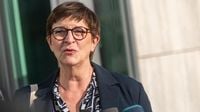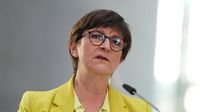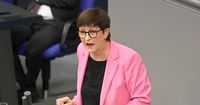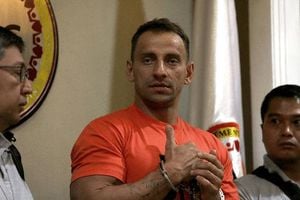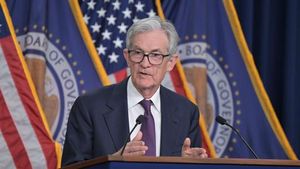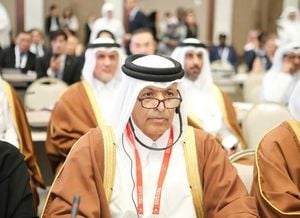In a significant turn of events within the German Social Democratic Party (SPD), party members are expressing strong opposition to the idea of party leader Saskia Esken, age 63, taking on a ministerial role in the new government. This internal dissent comes as coalition negotiations are underway following a disappointing election outcome for the SPD.
Prominent figures within the Brandenburg SPD have voiced their concerns regarding Esken's potential appointment. Brandenburg's Interior Minister Katrin Lange has been particularly vocal, stating in an interview with the "Bild am Sonntag" that, "The patience of the people with the current politics is running out." Lange emphasized the need for fresh personnel who can effectively implement necessary reforms in migration, climate, and economic policies.
As coalition talks progress, Lange has urged the SPD to consider whether Esken should remain a part of the new government. "We need to find suitable people who can implement new contents in the government," she said, highlighting the urgency for change within the party. This sentiment was echoed by Brandenburg's Economics Minister Daniel Keller, who also expressed reservations about Esken's role. Keller stated, "We achieved the historically worst election result. Saskia Esken should consider whether she needs to be part of the new federal government or not," during a podcast episode on April 1, 2025.
Resistance against Esken's appointment is not limited to the Brandenburg region. Fürth's Mayor Thomas Jung has called on Esken to step aside before the SPD's internal vote on the coalition agreement, suggesting that she should recognize her inability to contribute positively to the party's resurgence. "The comrade Esken should have the size to recognize that she cannot make a helpful contribution to a resurgence of the SPD," Jung stated in the "Bild am Sonntag."
Additionally, Gerhard Gaiser, the SPD parliamentary group leader in the Freudenstadt district, has demanded transparency regarding the potential ministerial appointments before the party's member vote. He insisted that the leadership must be open about who will be in the new cabinet, warning, "Saskia Esken must not be promoted as a minister. Otherwise, I see dark times ahead for the SPD and the state elections next year."
These internal conflicts come on the heels of the SPD's poor performance in the February 23, 2025, elections, where the party garnered only 28.5 percent of the vote, landing behind the Union at 28.5 percent and the Alternative for Germany (AfD) at 20.8 percent. The party's leadership is under pressure to demonstrate a commitment to renewal and reform, especially as they negotiate a coalition with the Union, led by prospective Chancellor Friedrich Merz.
Despite the criticisms, Esken remains a key figure in the ongoing coalition negotiations alongside party and parliamentary group leader Lars Klingbeil. However, speculation about her future within the party is rampant, with many suggesting that she may not run for party leadership again at the SPD conference scheduled for late June.
Esken has firmly rejected the notion that she alone is responsible for the SPD's electoral failures. In a recent statement, she expressed optimism about the potential for a black-red coalition to revitalize Germany, stating, "To make the AfD smaller again, it depends on us delivering. We need to write a coalition agreement, set goals that we can fulfill, and ensure that public services reliably support people, providing them with security regarding their jobs. Then we will succeed."
As the SPD grapples with its internal divisions and the need for a renewed political strategy, the pressure mounts for Esken and her leadership team to address the concerns of party members while navigating the complexities of coalition governance.
The upcoming SPD conference will be crucial in determining the party's direction and leadership, as members seek clarity on potential ministerial appointments and the future of the party in a rapidly changing political landscape. With the focus on suitable candidates who can embody the necessary policy changes, the SPD's ability to unite and present a cohesive front will be tested in the coming months.
